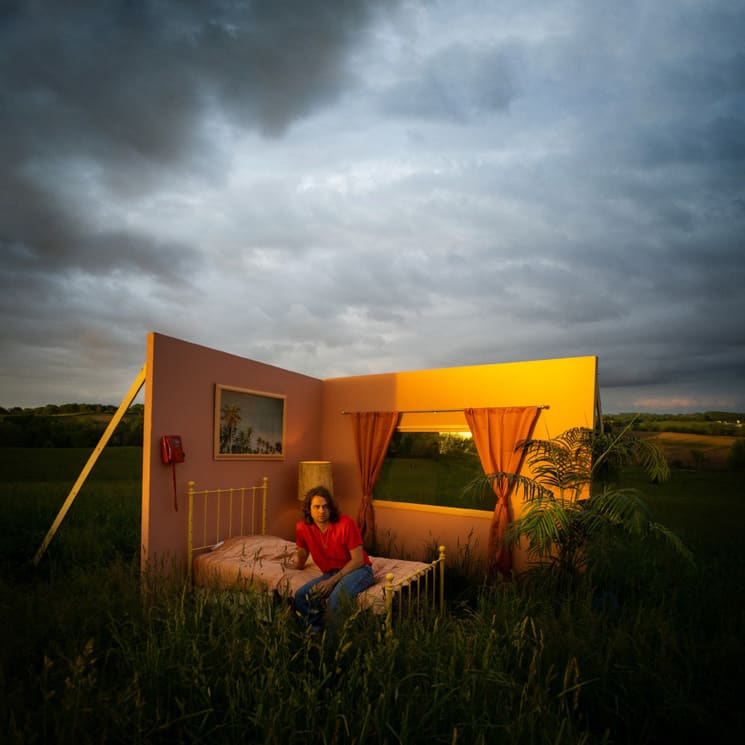In March 2020, the pandemic hit and Kevin Morby, like everyone else, had to stop what he was doing — prepping for another round of tour dates promoting last year's Oh My God — and seclude. During this period, Morby and producer Brad Cook worked together from their respective homes to put the finishing touches on Sundowner, which was previously written during a similar state of seclusion in the singer/songwriter's hometown of Kansas City back in 2017, and later recorded in 2019 at Sonic Ranch by the Texas-Mexico border.
Both of the locations where the album was made — and that sense of isolation — heavily inform the album at its core. Sundowner, which — as explained by Morby in a press release, refers to someone who "feels increased melancholy during twilight hours" — evokes alluring visions of middle American scenery: golden valleys, whooshing rivers, long stretches of empty highway, and the sun setting on a vast pastoral landscape. This imagery paired with Morby's lyrical storytelling, capturing feelings of sorrow and tenderness, make for a heavily pensive record.
Casting aside all the gospel elements and angelic choirs of Oh My God for twangy guitars, some drums and organ, Sundowner is largely stripped-down and bare — and reminiscent of some of Morby's earlier work. "Valley," the steadily rollicking folk rock tune, stands as a strong opener, and "Campfire" builds a mellow melody that breaks down to the crackling sounds of an open fire. The song's lyrics refer to the deaths of Those Darlins' Jessi Zazu, Richard Swift and Anthony Bourdain.
Elsewhere, "Don't Underestimate Midwest American Sun" slows things down for a sparse and strolling acoustic tune, while "Wander" is a short, harmonica-tinged ditty with a catchy hook.
Sundowner's glow begins to fade in the album's latter half. The final two tracks, the instrumental "Velvet Highway" and "Provisions," are pleasant enough, but taper the album off on a muted note. It's a minimalist ending showing that less isn't always more.
(Dead Oceans)Both of the locations where the album was made — and that sense of isolation — heavily inform the album at its core. Sundowner, which — as explained by Morby in a press release, refers to someone who "feels increased melancholy during twilight hours" — evokes alluring visions of middle American scenery: golden valleys, whooshing rivers, long stretches of empty highway, and the sun setting on a vast pastoral landscape. This imagery paired with Morby's lyrical storytelling, capturing feelings of sorrow and tenderness, make for a heavily pensive record.
Casting aside all the gospel elements and angelic choirs of Oh My God for twangy guitars, some drums and organ, Sundowner is largely stripped-down and bare — and reminiscent of some of Morby's earlier work. "Valley," the steadily rollicking folk rock tune, stands as a strong opener, and "Campfire" builds a mellow melody that breaks down to the crackling sounds of an open fire. The song's lyrics refer to the deaths of Those Darlins' Jessi Zazu, Richard Swift and Anthony Bourdain.
Elsewhere, "Don't Underestimate Midwest American Sun" slows things down for a sparse and strolling acoustic tune, while "Wander" is a short, harmonica-tinged ditty with a catchy hook.
Sundowner's glow begins to fade in the album's latter half. The final two tracks, the instrumental "Velvet Highway" and "Provisions," are pleasant enough, but taper the album off on a muted note. It's a minimalist ending showing that less isn't always more.




